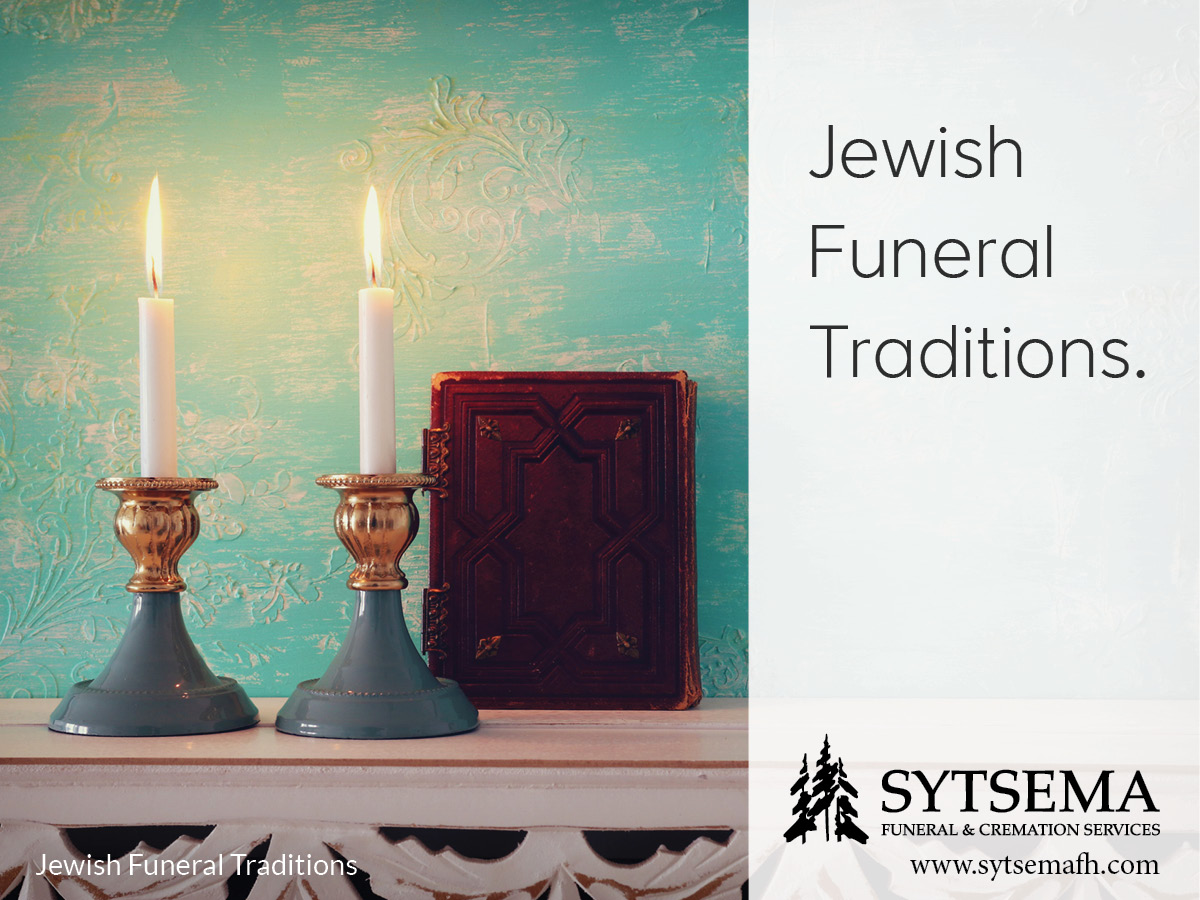
Should we Have an Open Casket?
Posted on April 12, 2024 by Sytsema Funeral Home | Leave a comment
Posted under Funeral Service
“I was very surprised at my reaction. Seeing John in his casket wasn’t something I was looking forward to. His daughter (from his first marriage) really wanted an open casket. So, I agreed. Mostly just to remain on good terms with my stepdaughter. He looked so peaceful. He had a Mona Lisa smile. I am […]
Continue Reading
Jewish Funeral Traditions
Posted on November 23, 2023 by Sytsema Funeral Home | Leave a comment
Posted under Funeral Service
As we begin to learn more about religious practices outside of our own, it is sometimes surprising to find how much different faiths have in common. Mourners of all faiths understand the power of grief and the comfort of community. So, what happens when a person of the Jewish faith dies, and how can a […]
Continue Reading
How Can We Use Pictures at a Funeral?
Posted on September 28, 2023 by Sytsema Funeral Home | Leave a comment
Posted under Funeral Service
Saying good-bye to someone you love is hard. Using pictures at the funeral of the person who died is a wonderful way to help tell a life story. There are a variety of ways to use photos. Using photos that span the entire life of a person—Mom as a little girl on the farm, as […]
Continue Reading
Choosing Music for a Funeral
Posted on August 31, 2023 by Sytsema Funeral Home | Leave a comment
Posted under Funeral Service
If it is given some thought, music can say everything about a loved one. Too often the power of including music as a part of a funeral service is overlooked. There is a lot to think about when planning a funeral so it is easy to see how music can get lost. There are many […]
Continue Reading
Why Don’t We Celebrate Life While the Person is Alive?
Posted on June 8, 2023 by Sytsema Funeral Home | Leave a comment
Posted under Celebration of Life
Interesting question, isn’t it? The person asking the question had recently attended what he described as a “fabulous funeral.” Turns out the funeral was billed as a celebration of life. Our questioner, Mark, attended because the person who died was the mother of a co-worker he had worked with for more than 30 years. Mark […]
Continue Reading